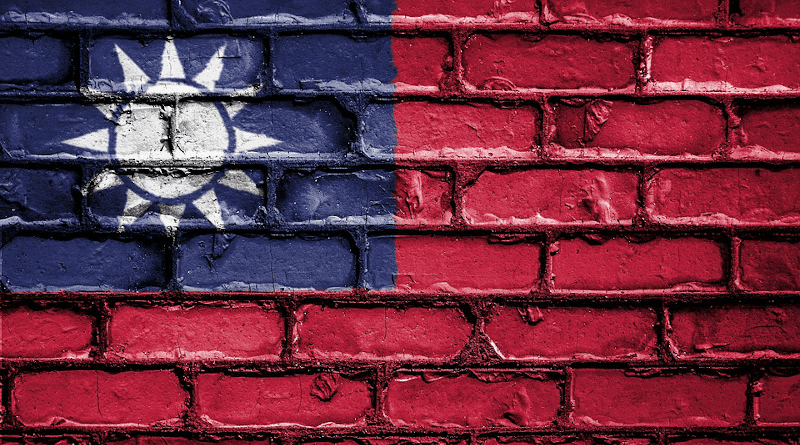Honduras Cutting Taiwan Off: China Wins – OpEd
The rise of Taiwan since President Tsai Ing-wen was elected has been a global challenge for China, including how Tsai needs to recognise the one China Policy. The One China Policy is a tremendous rule for Taiwan due to Beijing’s prohibition of Taiwan from showing itself on the international stage. China has used that rule to secure Taiwan as one of the historical territories, such as Hong Kong, Macau, and Tibet.
In Trump’s era, the United States (US), Taiwan’s ally, assisted Taiwan in many sectors, especially the economic sector. On March 13, You Si-kun, head of Taiwan’s legislature, one-China policy should be renewed. You Sin-kun alluded to and called it a “neo-one-China” policy. Neo-China policy includes the US attempts to get closer to Taiwan through the Taiwan Relations Act, the Taiwan Travel Act, and the subsequent Asia Reassurance Initiative Act of 2018, the Taiwan Assurance Act of 2020, and the Taiwan Policy Act of 2022.
US support for Taiwan is a threat to China. People’s Liberation Army (PLA) has increased mobility over Taiwan’s zone or ADIZ since 2017. President Xi said that Taiwan’s policy on China is a part of the separation group.
Internationally, Taiwan only has 13 countries that recognise them as a country – after Honduras moved to China. Recently, however, Honduras switched its diplomatic relations with China. President of China, Xi Jinping, prepares the strategies for that. Due to the one-China policy and based on the 1971 UN rule, both countries only acknowledge Taiwan as one part of Mainland China.
Many scholars argue that China wants to spread its leverage to the international stage following that issue. Nevertheless, Belt and Road Initiative (BRI) has played as a key role in China’s strategy to secure the one-China Policy.
BRI as a core
A report by the World Bank in 2022, Honduras is one of the poorest Latin American countries, and around 75% of its people have lived in poverty. Honduras’s Gini Index, especially in rural areas, increased from 2014-2019, reaching 0.431-0,486. It means a massive gap exists between rich and poor people in Honduras. The World Bank report also shows that around 30% of rural areas need more electricity and some infrastructure improvement.
The local government leaned with Taiwan when they requested to increase aid to $600m. However, in this case, Taiwan has yet to respond to that request. The President of Honduras, Xiomara Castro, decided to fulfil its campaign in 2021, where she promised to have ties with China. She did not specifically say if relations with Taiwan would be cut at that time. However, in January 2022, she said she hoped to keep those ties. It was proven by the meeting of Honduran Foreign Minister Eduardo Enrique Reina with Chinese Vice Minister of Foreign Affairs Xie Feng on the sidelines of Brazil’s presidential inauguration.
The switch of Honduras’s recognition to China is very meaningful. In early 2021, China and Honduras were negotiating to build a hydroelectric dam. Regarding that project, it was a part of China’s BRI projects, which offers a billion dollars to developing country to improve infrastructure. It means China uses its economic strategy to influence Honduras. As President Xi said in his speech in 2017, “… There will be short-term pains, but such pains will create a new life. The Belt and Road Initiative should be an open one that will achieve both economic growth and balanced development.”
The project was worth $300m and was offered and invested by Sinohydro, the Chinese company. Honduras’s company, Honduran Utility Empresa Nacional de Energia Electrica, will develop and own the project. In 2010, China also offered the construction of three dams on the Patuca river to generate 524 MW.
In trade sectors, China is important, which could export US$1.58 billion worth of goods to Honduras. It made China is as the second-largest exporter after the US. In 2021, according to the Trading Economics report, China’s main export was iron and steel ($382,99m), followed by electric, vehicles, and nuclear reactors.
Regarding Honduras’s policy on China, it was very reasonable. China could help Honduras to develop some infrastructure and reduce the gap. Despite many “debt-trap diplomacy” created by Western media, China shows its “identity” as a helper, not a “robber.” Beijing could also spur its leverage to another Taiwan ally. For example, Paraguay. Isabel Bernhard, an assistant director at the Adrienne Arsht Latin America Center, argues that Paraguay could be the next of China’s allies.
M Habib Pashya is a researcher at Center of Indonesia-China Studies (CICS), Indonesia. His research focuses on China’s foreign policy, Indonesia-China relations, Indonesia’s foreign policy, and the US-China-Taiwan relations.

